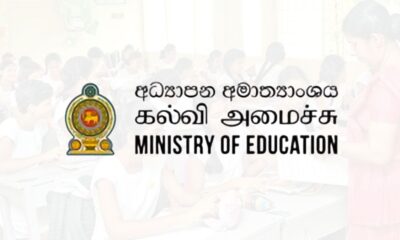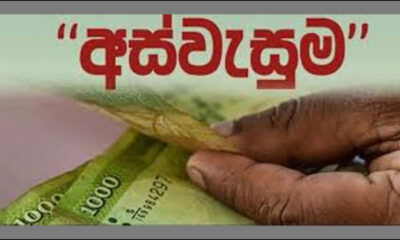News
Xi encourages Chinese investments to upgrade SL’s economy (Update)
Published
2 years agoon
By
editor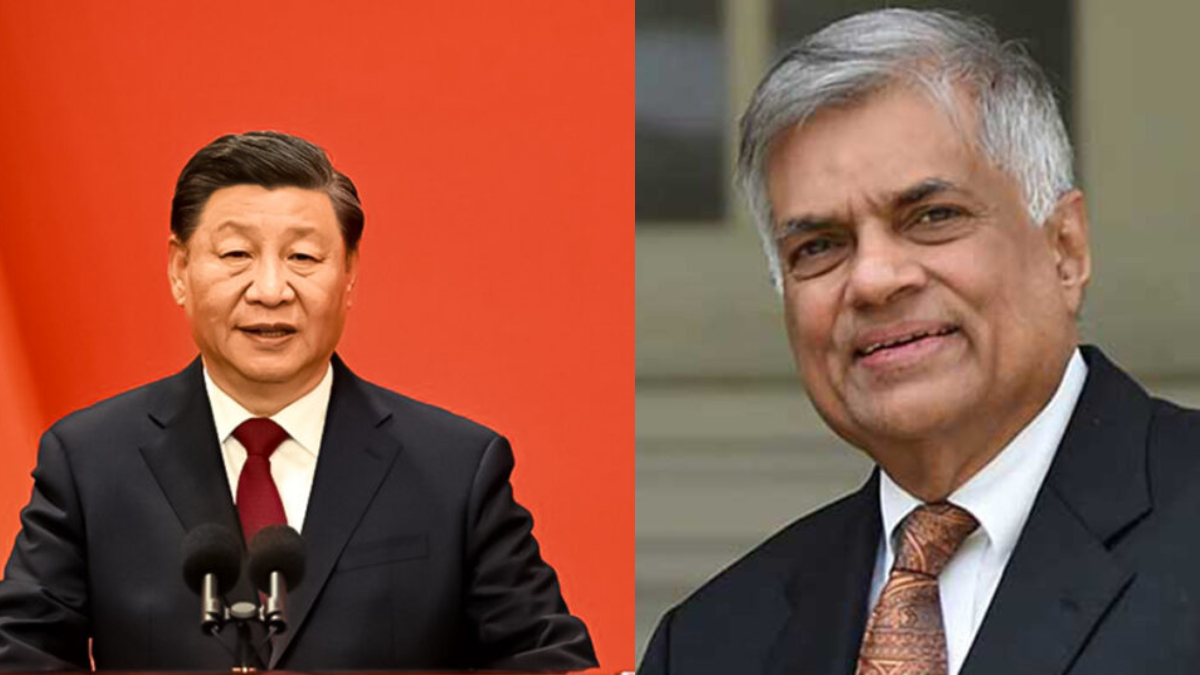
Chinese President Xi Jinping on Friday said that he encourages Chinese enterprises to invest and do business in Sri Lanka, so as to help the country transform and upgrade its economy and achieve sustainable development, Xinhua reported.
President Xi expressed these views when he met with President Ranil Wickremesinghe, who is in Beijing for the third Belt and Road Forum for International Cooperation.
Noting that Sri Lanka was one of the first countries to join the Belt and Road Initiative, Xi said China stands ready to work with Sri Lanka to jointly promote high-quality Belt and Road cooperation and push for new progress in developing China-Sri Lanka strategic cooperative partnership featuring sincere mutual assistance and lasting friendship.
China is willing to import more quality and specialty products from Sri Lanka, Xi said.
China will continue to provide assistance to Sri Lanka without any political strings attached and help the country cope with difficulties concerning its society and people’s livelihood, he said, adding that China is glad to see Sri Lanka becoming a commercial center in the Indian Ocean.
The two sides should strengthen collaboration on international and regional affairs, oppose politicization of the human rights issue and bloc confrontation, and safeguard the common interests of the two countries and developing countries, Xi said.
Wickremesinghe said Sri Lanka has attached great importance to and actively participated in the Belt and Road cooperation from the very beginning and has faith in its potential and prospects.
Noting the openness of the Indian Ocean, Wickremesinghe said Sri Lanka is willing to enhance communication with China in regional affairs and promote solidarity and cooperation among developing countries.
Senior Chinese officials Cai Qi and Wang Yi attended the meeting.
————————————–
(Previous News : October 20, 2023 8.37am)
President calls on Chinese President
An official meeting between President Ranil Wickremesinghe, who is on a four-day official visit to China, and Chinese President Xi Jinping took place a short while ago.
You may like
-
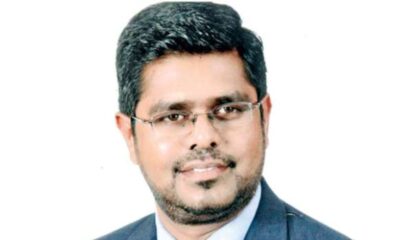

Further investigation needed into release of red-labelled containers: Mujibur
-


UAE beat SL in Rugby World Cup qualifier
-


Quazi judge & court clerk arrested over bribery charges
-
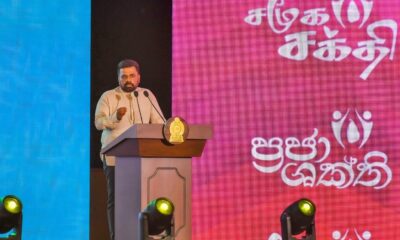

“Prajashakthi” launched (Pics)
-
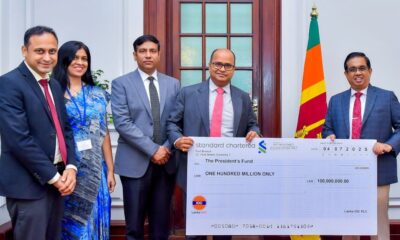

Lanka IOC donates Rs. 100 mn. to the President’s Fund
-
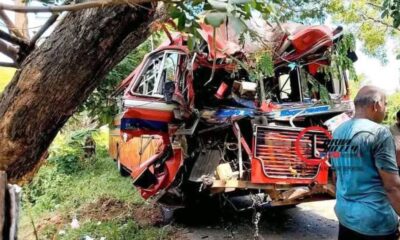

Bus veers off road and crashes into a tree (Pics)
News
Further investigation needed into release of red-labelled containers: Mujibur
Published
27 seconds agoon
July 5, 2025By
editor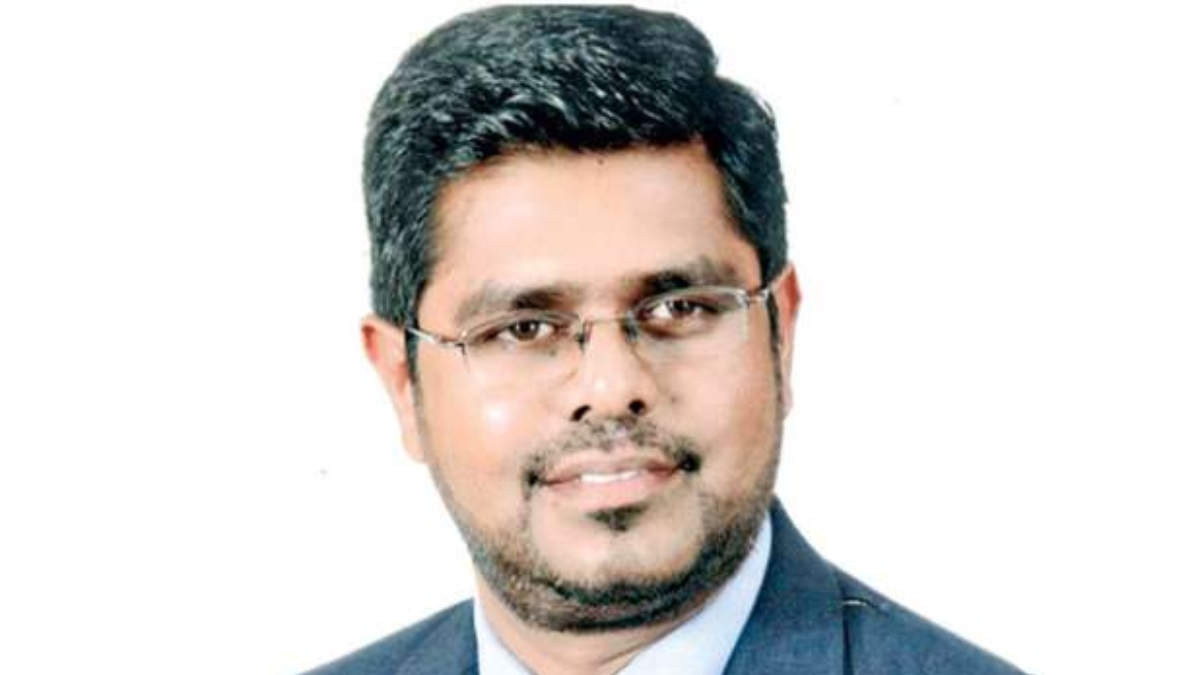
Opposition MP Mujibur Rahman has called for deeper investigations into the controversial release of 309 red-labelled containers, asserting that critical questions remain unanswered.
Speaking at a media briefing yesterday, the Samagi Jana Balawegaya (SJB) MP said the scope of the inquiry conducted by the presidential committee appointed by President Anura Kumara Dissanayake was too narrow. “The committee’s mandate was limited to determining whether these containers were released outside standard procedures,” he noted.
Rahman stressed the need to uncover whether political interference was involved in the release and to clarify the nature of the cargo within the containers. “It is vital to establish whether these containers were re-exported and whether any political figure facilitated their release,” he added.
He further demanded accountability from the Department of Customs. “The Customs Chief must disclose whether any political leader issued orders regarding the release. If he fails to reveal the truth, the blame will fall squarely on him and his officers,” Rahman warned.
The MP also questioned the government’s reluctance to act on the recommendations made by the presidential committee. “Why have government ministers remained silent about the next steps? Will a forensic audit, as suggested in the committee report, be carried out?” he asked.
According to the report, the committee found it unclear whether the cargo posed a national security risk or a threat to public health. It also revealed that neither physical inspections nor scanning of the containers had been carried out in line with standard procedures for red-labelled shipments.
The report recommended disciplinary action against customs officials involved in the unauthorised releases. It accused the Director General of Customs of overstepping his authority under the Customs Ordinance. It also noted a breakdown in the established risk management system, stating that red-labelled containers require the approval of four committee members prior to release. In this case, only one member, aside from the Director General, had approved the release.
In addition to disciplinary action, the report called for new protocols governing the release of containers to prevent future lapses.
(dailymirror.lk)
(Except for the headline, this story, originally published by dailymirror.lk has not been edited by SLM staff)
News
Quazi judge & court clerk arrested over bribery charges
Published
22 minutes agoon
July 5, 2025By
editor
A quazi judge and a court clerk attached to the Kaduruwela Quazi Court have been arrested.
According to the Commission to Investigate Allegations of Bribery or Corruption (CIABOC), they were arrested while allegedly accepting a bribe of Rs. 100,000 to deliver a favorable verdict in a divorce case.
They have been taken into custody on charges of soliciting, accepting, and aiding the acceptance of a bribe.
The suspects arrested yesterday morning (July 04) were scheduled to be produced before the Polonnaruwa Magistrate’s Court.
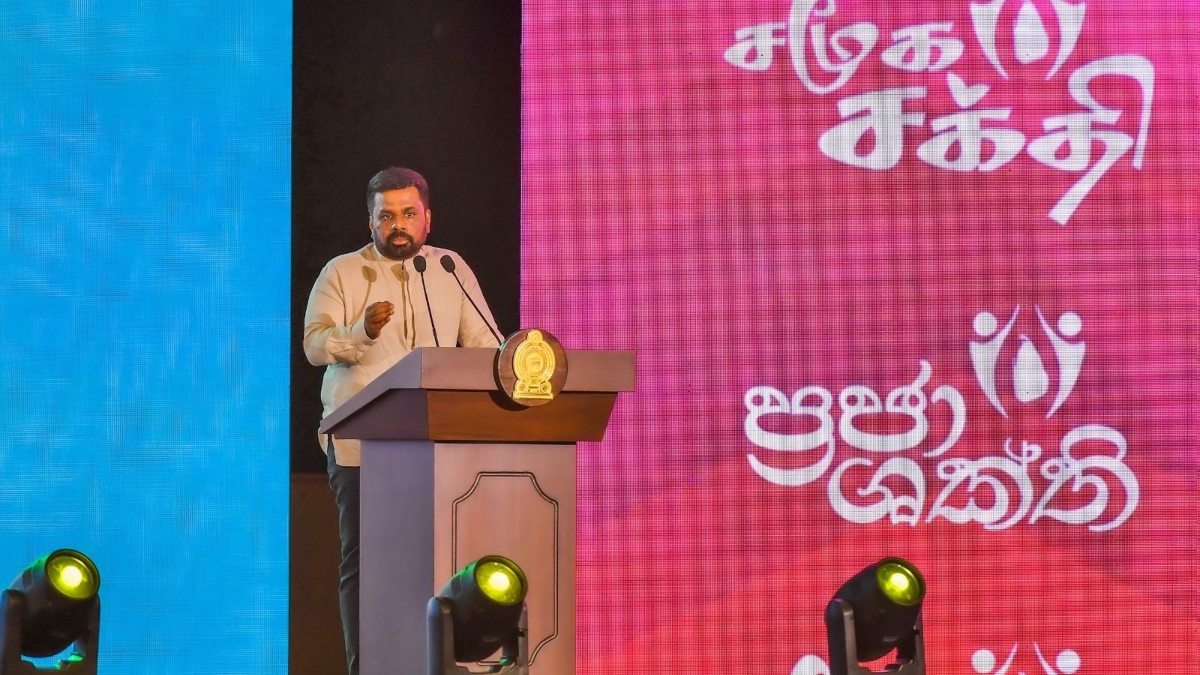
President Anura Kumara Disanayake emphasized that no matter the extent of economic growth reflected in statistics, if the advantages of this growth do not extend to the rural communities, then such growth holds no significance. The President further stated that while it is important to achieve national economic growth, it is equally essential to expand the economy in a way that creates opportunities for rural communities and makes them active participants in the economic process. He stated that this is a responsibility of the government.
The President made these remarks today (04) attending the launch of the “Prajashakthi” National Programme held at Temple Trees.
The “Prajashakthi” National Programme has been launched as a key initiative of the current government, aiming to empower communities and ensure the fair distribution of economic benefits across society.
The Secretary to the Ministry of Rural Development, Social Security and Community Empowerment, Mr. Sampath Manthrinayake, welcomed participants to the programme. The Secretary to the President, Dr. Nandika Sanath Kumanayake outlined the objectives of the initiative.
Following this, the Chairman of the “Prajashakthi” National Operations Committee and Minister of Rural Development, Social Security and Community Empowerment, Dr. Upali Pannilage, introduced the national movement.
The official “Prajashakthi” website was also launched by President Anura Kumara Disanayake during the event.
The Full Text of the Speech delivered by President Anura Kumara Disanayake:
A few years ago, our country experienced a severe economic collapse. While there were various contributing factors to this collapse, we must not forget that ordinary people in rural areas, who played no part in its cause, endured the greatest hardships.
They were affected in areas such as food affordability, access to quality healthcare, educational opportunities and the development of rural infrastructure. Therefore, the present government has both a responsibility and a challenge to uplift rural lives. This is a duty that cannot be abandoned.
One of the top priorities of our government is to eradicate rural poverty as a key step towards national progress.
Today, we have managed to bring the economy to a relatively stable state. We have maintained the dollar’s value close to Rs. 300, steadily raised foreign reserves, directed treasury revenue to meet our goals and reduced interest rates to single digits. These are notable indicators of economic stability. We have also been able to gradually restore investor confidence in the country.
Numerous stalled projects have been successfully renegotiated and restarted. In addition, we have received a substantial number of proposals for new investment projects, many of which were approved at the recent Cabinet meeting. Therefore, our focus is now on new investments and development projects. Through these effective and results-driven investments, we can simultaneously achieve economic stability and economic growth.
However, if these economic benefits do not flow to the rural population, then even achieving growth in statistical terms is insufficient. This is why we must pursue economic growth on one hand and economic expansion on the other. If rural people are not given economic opportunities and included as stakeholders in the economy, they will become marginalised. Our core approach must therefore be to expand the economy and integrate rural communities into it.
This is possible only if the current rural economic activities are transformed into more productive, efficient and profitable ventures. These sectors should be developed to become thriving businesses. Widening their access to economic opportunities is also vital. Hence, we are prioritising the creation of new economic avenues for the rural population, making them active players in the economy.
Poverty has gone beyond being an economic issue and become a deep-rooted social problem. Poor communities have become isolated from society. Therefore, eliminating rural poverty is one of the government’s primary responsibilities. Education plays a key role in this. There is a direct correlation between poverty and lack of education. Thus, we must expand educational opportunities further. Despite all efforts, every society has a segment of people who will face difficulties. Even in so-called developed nations, such communities exist. A welfare system is required to support these groups.
Welfare is not inherently a bad tool. If a population is vulnerable at a given time, it is the government’s responsibility to protect them. However, welfare has often been misused, turning into a political tool. This has led to growing criticism of such programmes due to their politicisation.
Our policy under the National People’s Power government is to provide targeted welfare. Assistance must be given to the right people for the right reasons. I believe the government holds this responsibility and society must also understand its importance. In our society, there is a belief that anything given by the state must be received by all. That is a mistaken belief. Our state is not built on such a culture of entitlement. Our culture is to protect those who need protection. Because of distortions in past practices, those who don’t need aid often compete to obtain it, making it harder to support those who truly do.
We must therefore foster a new culture. People must be self-aware enough to recognise whether they truly deserve government support. Even if you have the ability, the person next door mat doesn’t have that ability. It is essential to cultivate a sense of responsibility to assist others. But today’s mentality is to claim whatever is available, regardless of whether one needs it or not. This is the reason we strive to create a strong data system, ensuring that support is provided solely to those who truly require it.
However, we all know that a society cannot rely forever on welfare programmes. There will always be a need for welfare systems, but they must not serve the same individuals or communities indefinitely. Others too must be enabled to become contributors to the economy.
Significant government funds have been expended for this purpose. Approximately, Rs. 230 billion has been allocated solely for the ‘Aswesuma’ programme. Large sums of money have also been spent on other aid programmes. However, have these funds reached the targeted communities? Have the intended benefits been realised from these funds? The answer is no.
Various international organisations implement aid programmes in this country. Looking at these, more than 50% of the expenditure goes towards establishing the mechanism for delivering the aid. An official waits to see how they can personally benefit from a project once it is received. They have their job, but the project is not within their purview. They then claim that an allowance is required to implement the project. Consequently, a substantial portion of these aid funds is spent on the aid delivery mechanism rather than reaching the intended beneficiaries. Furthermore, a significant amount has been spent on training within this mechanism. These practices must cease. As a government and as state officials, you have a responsibility to ensure that aid reaches the targeted communities.
We assure you that we will absolutely not allow any misuse of these funds. An operation must be launched to ensure that aid reaches those who are deserving.Similarly, there is a tendency for every Ministry to believe they must provide something. However, based on a very accurate data system, it should be determined what should be provided and for what purpose. But what is happening now is not in that manner. Every institution and department is inclined to provide aid. Yet, all aid flowing to rural communities and programmes aimed at empowering their economies must be integrated. A large portion of our aid has been provided merely for subsistence. It has not succeeded in improving the living standards of these people. That is why an integrated operation is necessary. We are launching the ‘Prajashakthi’ programme as that operation. It is a targeted operation. The programme must be structured down to the Divisional Secretariat level.
Currently, a significant administrative structure has been built. I do not believe a child will be born without a birth certificate anymore. When they reach the appropriate age, they obtain an identity card. In the next two years, we will move towards a digitisation mechanism. So, what is the responsibility of the lowest administrative unit in this mechanism? The responsibility of the lower administrative unit is to understand the nature of its unit and to create a plan to advance that unit based on its characteristics. We must advance the Divisional Secretariat from this point onwards. A programme should be prepared for that. There is a need to spend money there and we are prepared for it.
I also acknowledge that our state mechanism is largely dilapidated. If you consider all the vehicles owned by state officials, they are all more than 15 years old. More than 50% of the buses on the road are vehicles unfit for road use. The computers in offices are significantly outdated. The systems in our institutions have not been updated. Buildings are deteriorating. From every angle, we have a dilapidated state mechanism. We come to the office like ordinary villagers. That is the honest truth. In the last budget, salaries were increased and necessary support was provided to human resources.
Therefore, in the upcoming budget, we will work to build the physical resources of the state mechanism. Relative to building physical resources, we will introduce new software systems and modernise the state mechanism. However, this is for the benefit of the citizens. If, within that modernised state, the same old person is sitting in the old chair, there is no benefit. Therefore, within this modernised state mechanism, we need a new public servant.
This is the only way we can overcome this challenge. Otherwise, if we scatter, thinking this is a political task, a job for the political authority, or for the Grama Niladhari , the Development Officer, or the Divisional Secretary, it cannot be achieved. To do this, an unyielding, integrated operation involving both the political authority and the state mechanism is required. The objective of the ‘Prajashakthi’ programme is to bring together the state mechanism, state officials and citizens into an integrated framework. Without this, nothing can be accomplished. Our aim is not merely to maintain the existing state; if that were the case, the current situation would suffice.
To rebuild a fallen state, the political authority, the state mechanism and the citizens must be brought together into an integrated operation. Therefore, there is a community that has lost economic opportunities in this fallen state. An integrated operation is needed to create economic opportunities for that community. I urge all of us to work together to make this ‘Prajashakthi’ project a success.
Dr. Upali Pannilage, Convenor of the ‘Prajashakthi’ National Policy Council and Chairman of the National Operations Committee, Minister of Rural Development, Social Security and Community empowerment :
When discussing poverty in our country, the village holds a special place. Not only in Sri Lanka, but internationally, especially when looking at Asia, Africa and Latin American regions, we cannot discuss poverty by forgetting the village. That is why the United Nations declared July 6th as World Rural Development Day.
Although rural poverty in our country has been a subject of discussion for decades, various attempts have been made to change it. However, for example, looking at the statistics for the year 2000, 1.1 million people in our country were dependent on aid. By 2010, this number had increased to 1.5 million. By the end of 2024, the number of people dependent on aid had reached close to 1.8 million.
These statistics confirm that despite numerous programmes implemented to eradicate poverty, the impoverished community in our country is growing steadily. Although the world’s population is rapidly urbanising, nearly 79% of our country’s total population lives in rural or estate areas. Therefore, as the National People’s Power government, when planning our policies, we made the eradication of rural poverty a central theme.
Before launching this programme, we thoroughly studied the weaknesses of the poverty eradication programmes implemented in our country. We designed this programme by addressing those weaknesses and providing answers to the question: How can we truly eradicate poverty in our country? Primarily, we expect to achieve several objectives through this programme.
Prime Minister Dr. Harini Amarasuriya; Sunil Handunnetti, Minister of Industry and Entrepreneurship Development; Wasantha Samarasinghe, Minister of Trade, Commerce, Food Security and Cooperative Development; Professor Chandana Abeyratne, Minister of Public Administration, Provincial Councils and Local Government; Samantha Viddyarathna, Minister of Plantation and Community Infrastructure; Saroja Paulraj, Minister of Women and Child Affairs; Mahinda Jayasinghe, Deputy Minister of Labour; along with other Ministers and MPs; Dr. Nandalal Weerasinghe, Governor of the Central Bank; Provincial Governors; Ministry Secretaries; state officials; and representatives from international organisations were among those who attended the occasion.
(President’s Media Division)
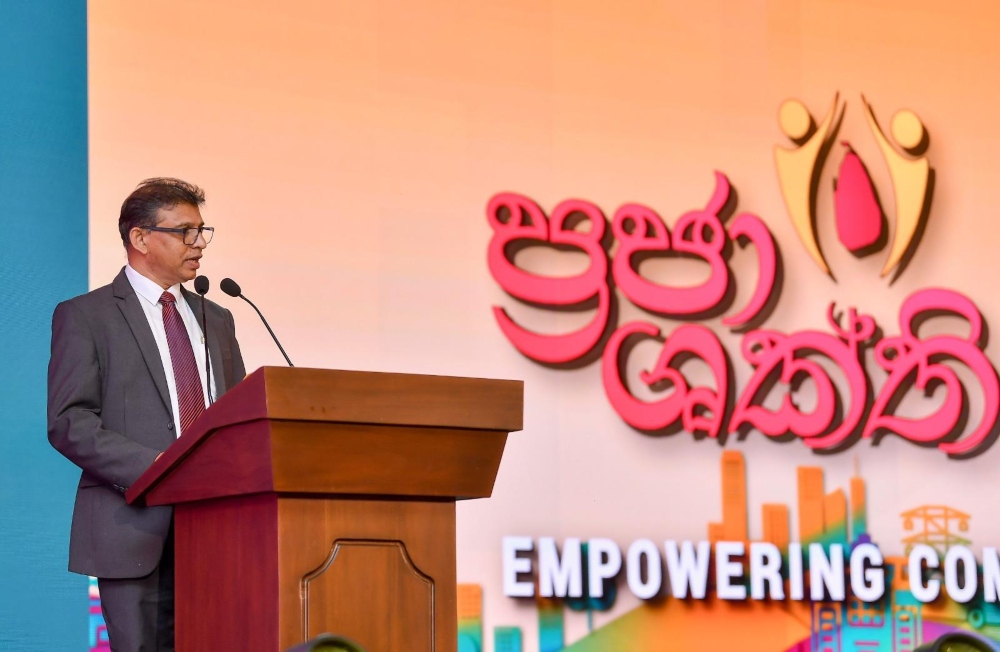
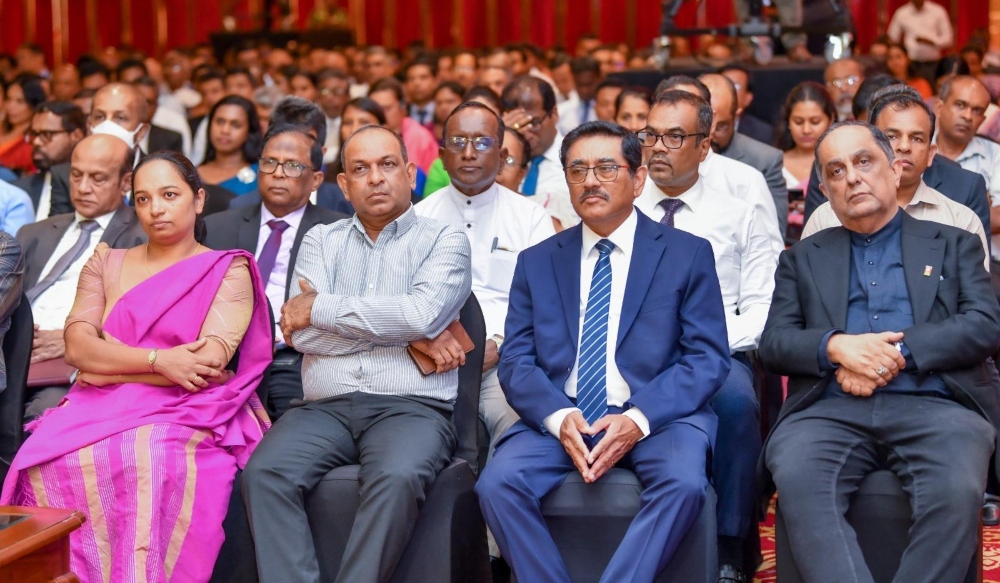
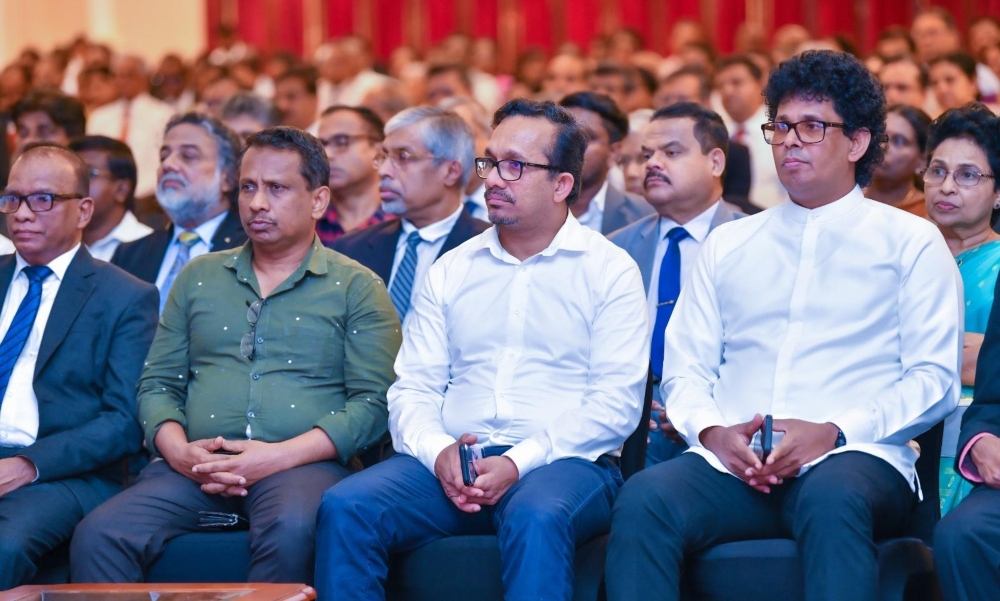
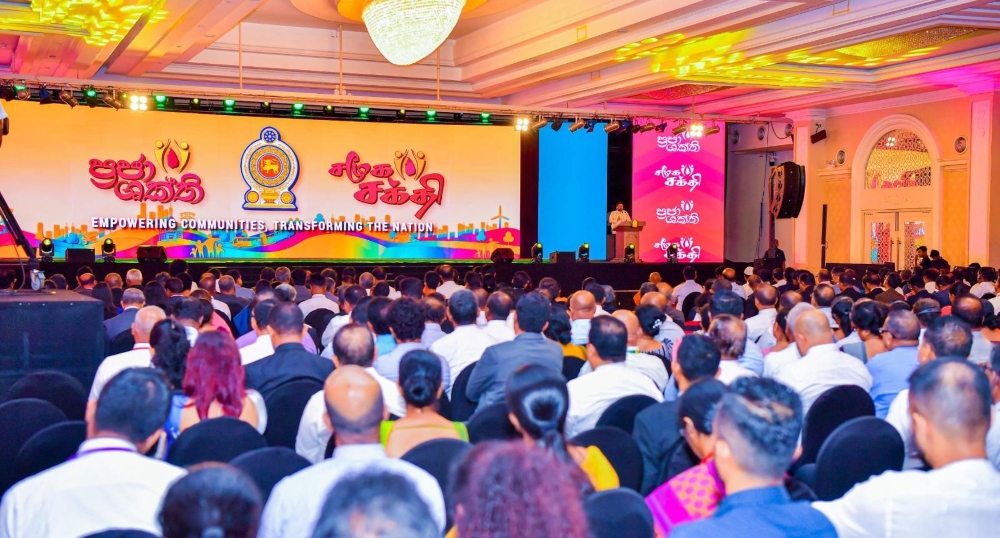
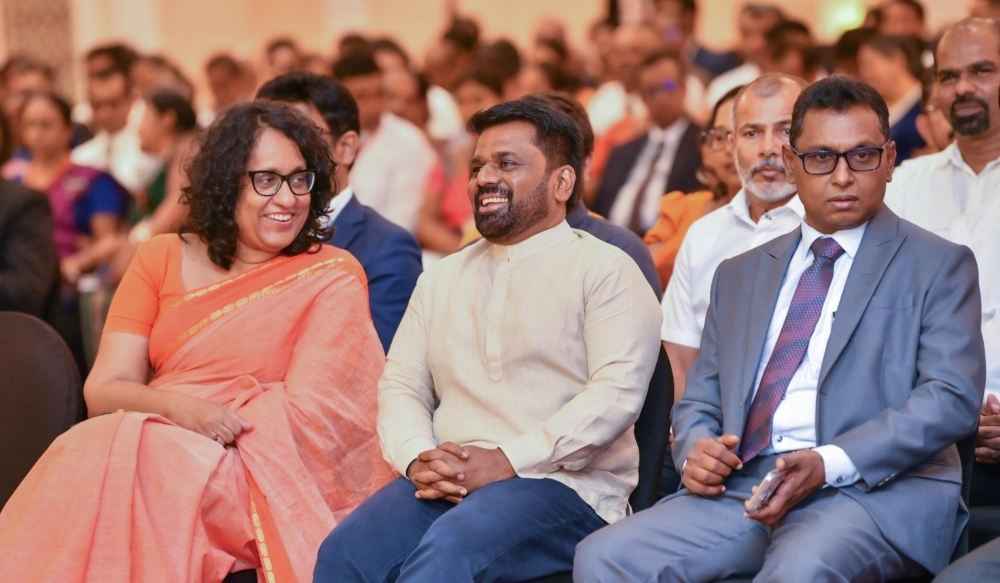
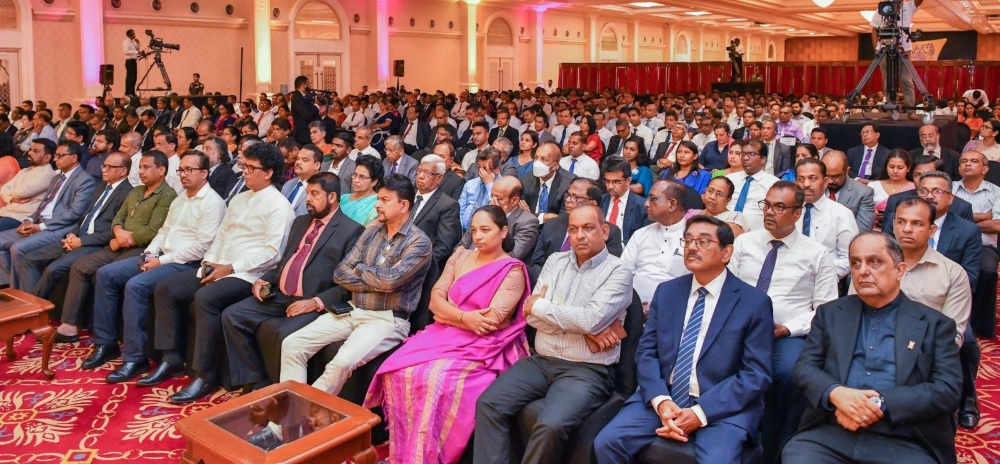
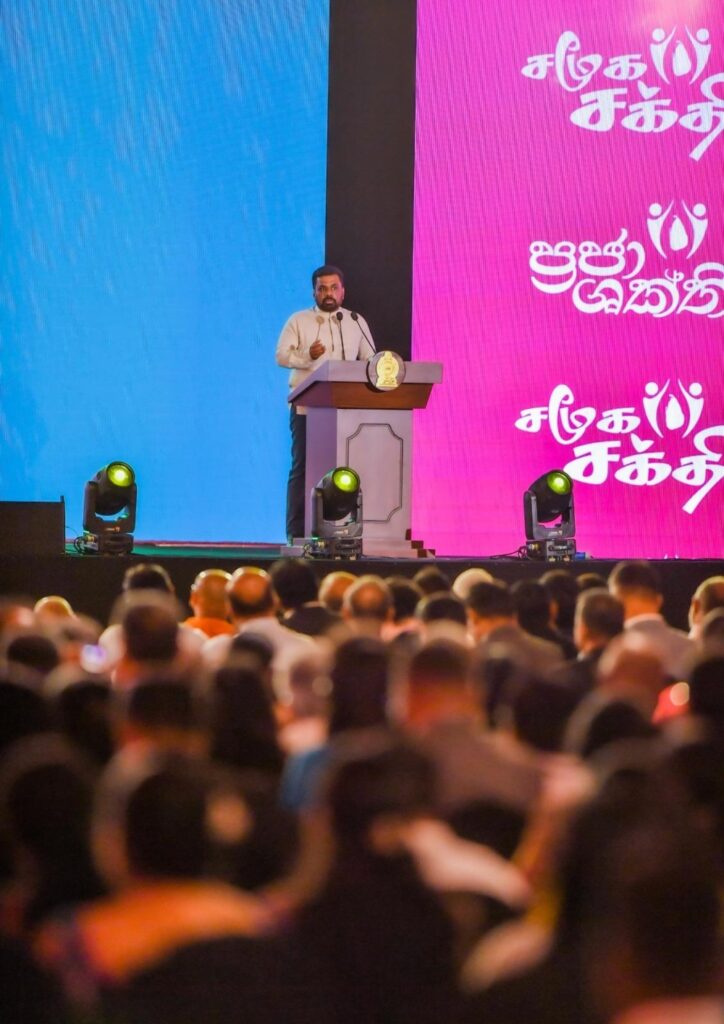
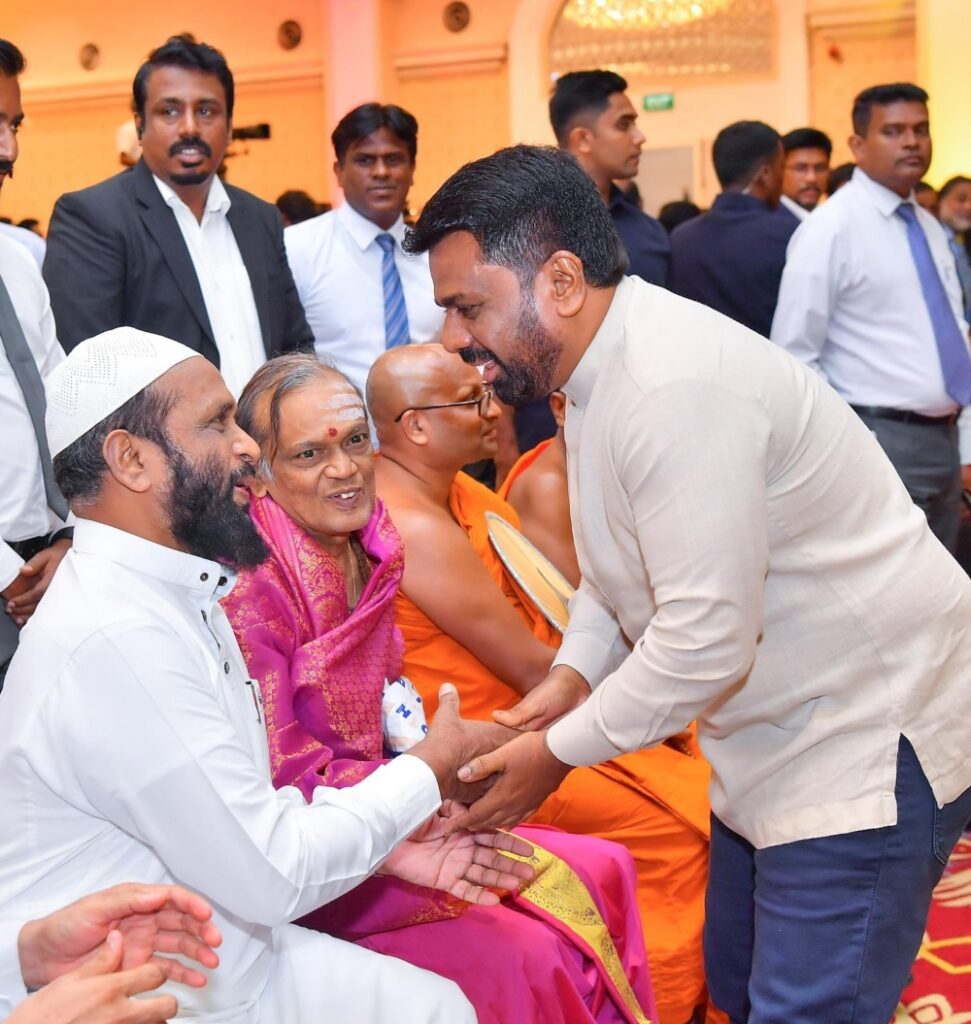
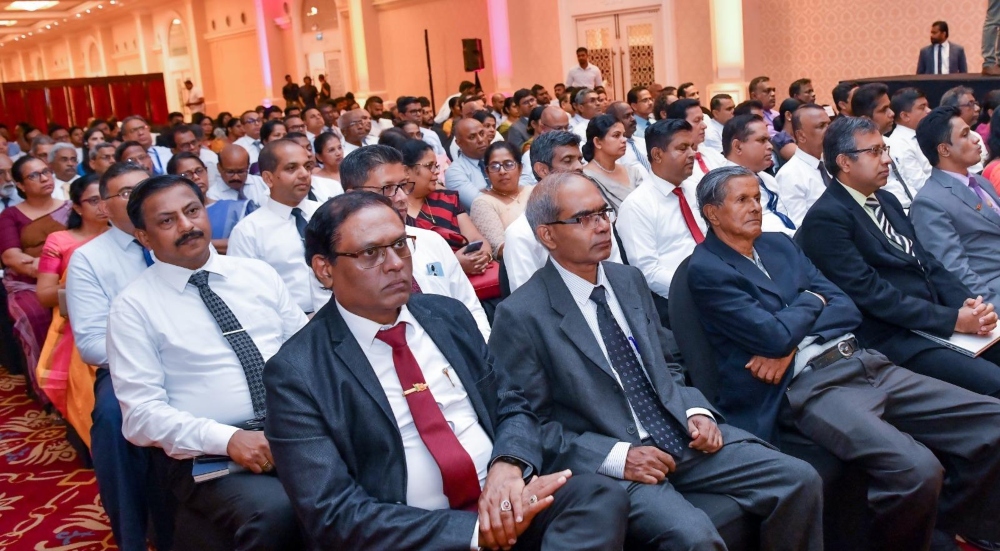

Further investigation needed into release of red-labelled containers: Mujibur

UAE beat SL in Rugby World Cup qualifier








